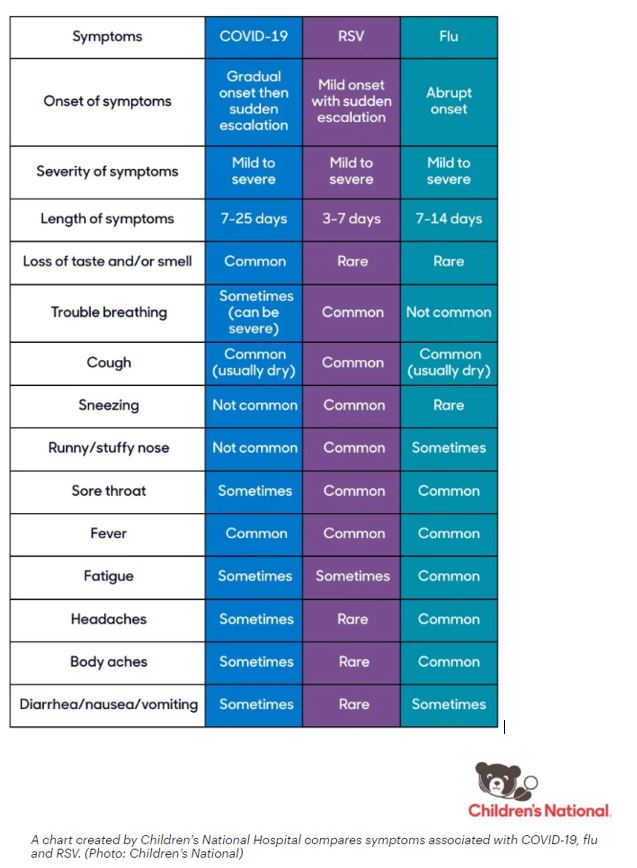Here at Clínica del Buen Pastor Mountain Hope, we are seeing the uptick in viral illnesses in recent days. In the midst of the ongoing health concerns surrounding respiratory illnesses like RSV, COVID-19, and seasonal flu, understanding when it’s necessary to seek medical attention can be a matter of life and death. While many symptoms of these illnesses may overlap, knowing the subtle differences and recognizing red flags can make a significant impact on your health and well-being.
Respiratory Syncytial Virus (RSV), commonly affecting infants and young children, can also cause illness in adults. Symptoms often mimic those of a common cold, including a runny nose, cough, and mild fever. However, in severe cases, RSV can lead to more serious complications such as bronchiolitis or pneumonia, particularly in vulnerable populations such as older adults or individuals with weakened immune systems.
With the emergence of COVID-19 the spotlight has been on identifying symptoms unique to the virus. While COVID-19 shares similarities with other respiratory illnesses, such as fever, cough, and fatigue, it’s distinguished by additional symptoms like loss of taste or smell, body aches, and shortness of breath. Notably, COVID-19 can lead to severe respiratory distress and complications, especially in older adults and those with underlying health conditions.
 On the other hand, seasonal influenza, or the flu, presents with symptoms like fever, cough, sore throat, muscle aches, and fatigue. While most cases of the flu resolve on their own with rest and hydration, severe cases can lead to complications such as pneumonia, particularly in high-risk groups like young children, pregnant women, and older adults.
On the other hand, seasonal influenza, or the flu, presents with symptoms like fever, cough, sore throat, muscle aches, and fatigue. While most cases of the flu resolve on their own with rest and hydration, severe cases can lead to complications such as pneumonia, particularly in high-risk groups like young children, pregnant women, and older adults.
So, when should you seek medical attention?
First and foremost, if you or a loved one experience severe symptoms such as difficulty breathing, chest pain, confusion, or bluish lips or face, it’s imperative to seek immediate medical help. These could be signs of a serious respiratory condition requiring urgent intervention.
If you or someone in your household is at high risk for complications from respiratory illnesses, such as older adults or individuals with chronic medical conditions, it’s prudent to consult a healthcare provider early on, even for mild symptoms. Early intervention can prevent complications and ensure timely access to appropriate care.
In any case, if you’re unsure whether your symptoms warrant medical attention, it’s always better to err on the side of caution and consult a medical provider.
Staying vigilant and informed about the symptoms of respiratory illnesses like RSV, COVID-19, and flu is essential for safeguarding our health and the health of those around us. Knowing when to seek medical attention can mean the difference between a swift recovery and serious complications. Whether it’s recognizing the unique symptoms of COVID-19, monitoring for signs of respiratory distress, or understanding the risk factors for severe illness, taking proactive steps to prioritize our health is paramount. Remember, your health matters – don’t hesitate to reach out to healthcare professionals if you have any concerns. Stay safe, stay healthy.